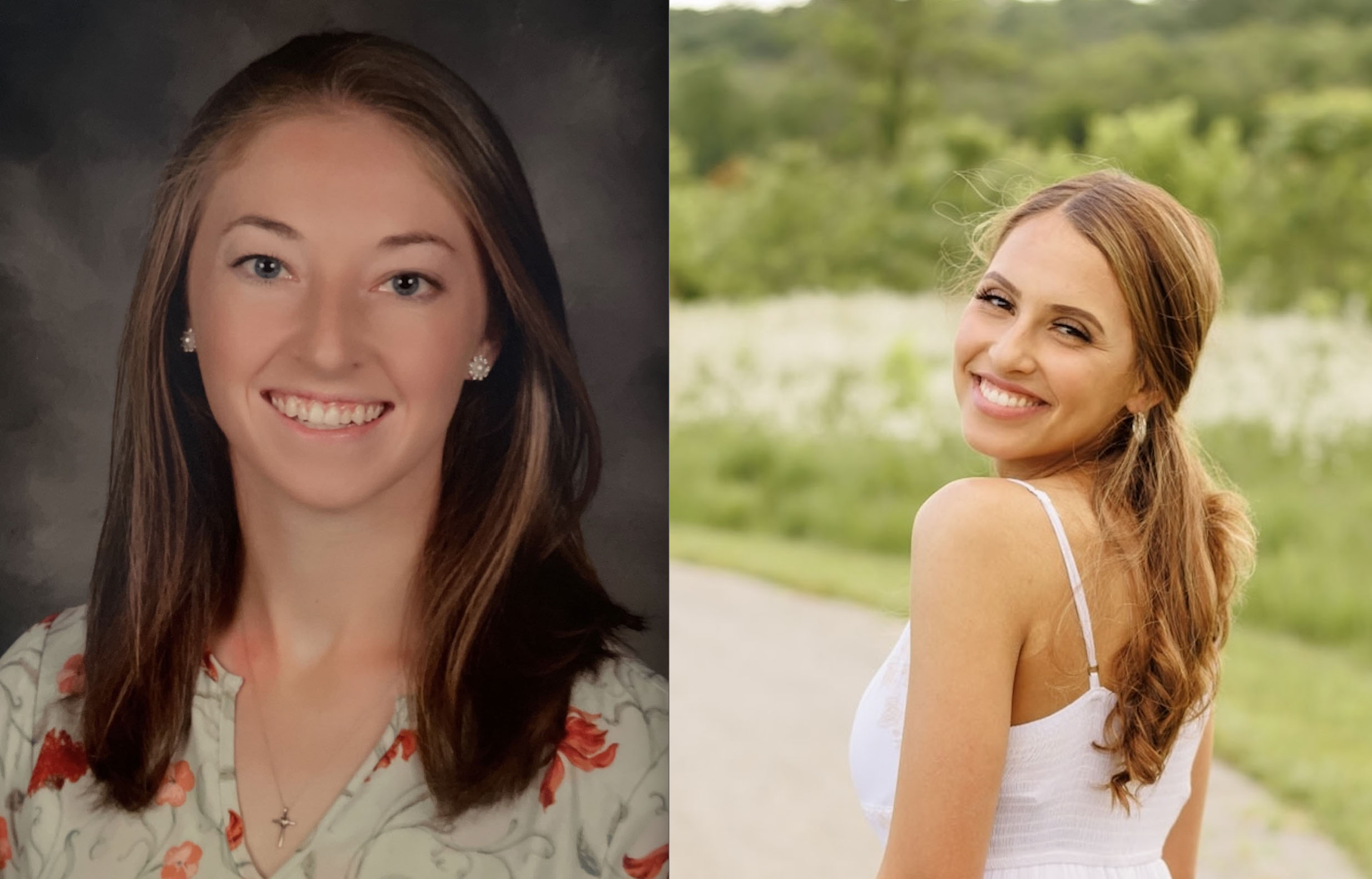Students Thankful for HRSA Scholarships
Sep 13, 2023
By Ryan Clark
CHS Communications Director
It’s safe to say — because they’ve said it themselves — that Elise Craig and Jonne’ Brown would not have been able to attend graduate school without the Health Resources and Services Administration (HRSA) Scholarships for Disadvantaged Students (SDS).
“It’s honestly been a huge relief,” said Brown, a second-year graduate student. “I am so thankful for it.”

The College of Health Sciences received a grant from HRSA to provide scholarships to full-time graduate students studying speech-language pathology who:
- have unmet financial need;
- and meet specified requirements demonstrating that they are from economic, environmental, or educational backgrounds that may place them at a disadvantage, including those from ethnic and racial minority groups.
The purpose of this scholarship program is to increase the number of licensed speech-language pathologists in medically underserved communities by removing financial barriers to successful program completion.
“I am the first college graduate from my family, or a first-generation college graduate,” said Brown, 27. “This is a great relief of not having to take out a number of loans. I honestly thought it was a hoax when I first applied for it.
“When I first got it, I was like, ‘Oh, wow!’”
Both Brown and Craig had the same goal: to become Speech Language Pathologists.
“I used to work at a facility for individuals with intellectual disabilities, like an inpatient rehabilitation center, and I got to see all forms of rehab,” Brown said. “It really opened my eyes to speech as a whole, because in my mind, I just considered like, the school aspects of it. But the medical aspect for me was really interesting, and I applied to UK few weeks later. Now, here I am.”
Craig, who has graduated and now works as a speech language pathologist, has a similar story.
“I applied because I did have some unmet financial need, and because I was a non-traditional student,” Craig said. "I was out for a couple of years and went back to school after working a low-paying job for a couple of years. I had enough saved up to get myself started, but not to pay for tuition* for three years.”
Craig, 28, knew if she got the scholarship, she would be able to pay for things like living expenses, while making sure she did not have to take out giant loans. Then she could live her dream and become a speech pathologist.
Craig graduated with a bachelor's degree in psychology, and during that time she worked with students with Down syndrome, observing their speech therapy.
“I realized what a difference speech could make — giving people the ability to communicate, who before had no verbal speech,” Craig said. “Just seeing the difference that I could make in people's lives, giving them control, was what I wanted to do.”
What would they both say now to the organization that helped them financially?
“I would like to start off just by saying, ‘Thank you for the amount of time and effort it has taken to get the grants for all the students who are able to benefit from it,’” Craig said. “They don’t even know us individually, but they have benefited us in such a huge way to help us get through college.”
“It’s a huge relief, especially when you come from a world of not knowing,” Brown said. “Whether or not your finances allow you to budget for certain things, just having that relief, having part of your school taken care of, it’s just a huge relief.”
The purpose of this federal grant is to lower financial hurdles for SLP graduate candidates from an educationally, economically or environmentally disadvantaged background. The Department of Communication Sciences and Disorders has had this scholarship program since 2016 and it will end in 2025.
The University of Kentucky’s College of Health Sciences had been initially authorized for four years (2016 – 2020) of the HRSA SDS Award. We then received reauthorization for an additional five years for 2020-2025, thus we are completing Year 7 (2022-23) of funding. The grant funds full-time students earning an MS degree in Communication Sciences and Disorders (CSD) who are from disadvantaged backgrounds, potentially increasing the number of qualified Speech-Language pathologists (SLPs) employed in underserved communities. To date this scholarship has awarded over $3.5 million.